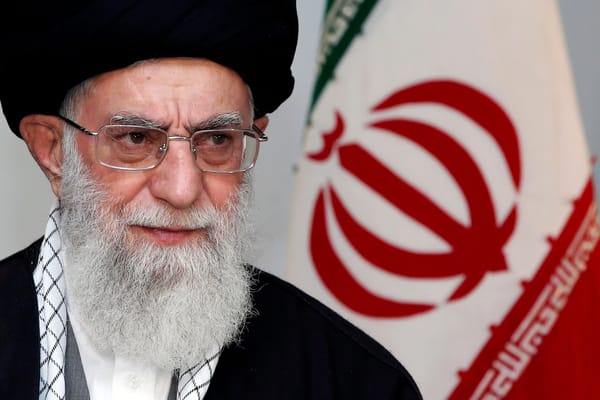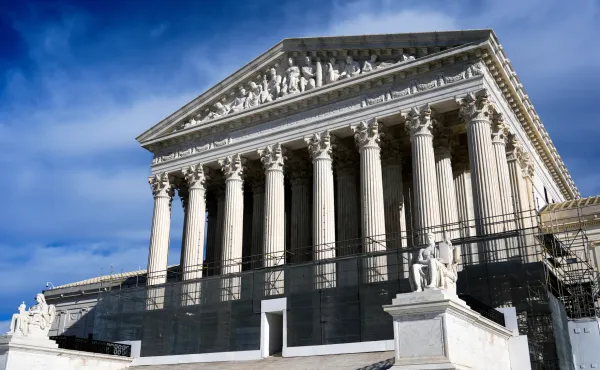First American Pope Elected

Cardinal Robert Francis Prevost, 69, has been elected as the 267th leader of the Catholic Church, the first American pope in history. He has adopted the papal name Leo XIV. Prevost was born in Chicago with Creole heritage but has spent much of his life abroad. He studied in Rome, served as bishop in Chiclayo, Peru for 20 years, and since Pope Francis made him a cardinal in 2023, he has served in a senior role in Vatican City, running the global office that selects and manages bishops.
The new pontiff has a reputation for hands-on humanitarian work. While aligned with former Pope Francis on social justice issues, he has previously expressed somewhat more conservative views on LGBTQ+ issues. His social media has reportedly criticized the Trump administration immigration policies as well as Vice-President JD Vance (himself a Catholic), but both politicians extended congratulations despite past disagreements.
"It is such an honor to realize that he is the first American Pope," President Trump wrote on Truth Social. "What excitement, and what a Great Honor for our Country. I look forward to meeting Pope Leo XIV. It will be a very meaningful moment!”
🌍 Global Affairs
Pakistan and India at War
India and Pakistan have entered their most expansive military conflict in decades. India launched strikes on nine sites in Pakistan on Wednesday, in retaliation for a terrorist attack in Kashmir that killed 26 civilians. Pakistan's prime minister called the strikes “an act of war” and promised a “measured but forceful” response.
On Thursday, Pakistan claimed it downed at least 25 Indian drones and shot down five Indian Air Force planes, includingthree French-made Rafale fighter jets.
About 81% of Pakistan’s military equipment comes from China—but it is also funded on average with over a billion dollars a year by the U.S.—and Pakistan says they successfully used Chinese equipment to shoot down the French-made fighter jets.
As the former “crown jewel” of the British Empire, India sees Kashmir as its own crown jewel. But both Pakistan (predominately Muslim) and India (predominately Hindu) lay claim to the beautiful region of Kashmir—which is predominately Muslim—since gaining their independence from the British Empire in 1947. The neighbors have fought three wars and countless skirmishes over the territory, which is divided by a 460-mile "Line of Control.” Tensions intensified in 2019, when India, under Prime Minister Modi, stripped Kashmir of the autonomy it had enjoyed under India's Constitution and opened the region to tourism, upsetting many Kashmiris. The recent tourist massacre in Indian-controlled Kashmir sparked this latest confrontation, with India blaming Pakistan for backing the attack, a charge Islamabad denies.
President Trump posted on Saturday morning, “After a long night of talks mediated by the United States, I am pleased to announce that India and Pakistan have agreed to a FULL AND IMMEDIATE CEASEFIRE. Congratulations to both countries on using common sense and great intelligence.” Some reports of violations, however, have continued. This is a developing story.
Middle East Developments
- Israel's Ultimatum: Israel's Security Cabinet has approved an offensive military operation to capture Gaza if a new hostage-and-ceasefire deal isn't reached before President Trump's upcoming visit to the Gulf states. An Israeli official who briefed the media on Monday morning said that "the plan will include, among other things, the capture of the Strip and holding the territories, moving the Gazan population south…denying Hamas the ability to distribute humanitarian supplies, and powerful attacks against Hamas." The aid would be distributed through private companies.
- Surprise Houthi Ceasefire: President Trump announced the U.S. would cease bombing Houthi rebels in Yemen, saying the Houthis had "capitulated," agreeing to stop attacking American vessels in the Red Sea. The Houthis continue operations against Israel. After a Houthi missile struck near Tel Aviv's Ben Gurion Airport, Israel retaliated by striking Yemen’s main airport.
💰 Economy & Trade
U.S. / U.K. Trade Agreement
President Trump announced a new trade framework with the U.K. that reduces U.S. tariffs on British cars, steel, and aluminum while maintaining a baseline 10% tariff on goods. Average British tariffs on imports from the U.S. will fall from 5.1% to 1.8%. British Prime Minister Keir Starmer joined the Oval Office announcement by speakerphone. The Trump administration said it would open up export opportunities worth $5 billion for American businesses, while also bringing in $6 billion in tariff revenue. The U.S. had a trade surplus with the U.K. of nearly $12 billion in 2024. It's one of the few major countries with which the U.S. doesn't run a deficit.
U.S.-China Relations
China expressed willingness to start trade negotiations if Washington shows "sincerity" by canceling some tariffs. President Trump suggested that an 80% tariff on Chinese goods "seems right," substantially lower than the current 145% levies. Treasury Secretary Bessent is meeting with Chinese officials in Switzerland this weekend.
Labor Market
The U.S. economy added 177,000 jobs in April, indicating a stable labor market despite ongoing economic adjustments.
🏛️ Domestic Policy
Trump's Budget Proposal
President Trump's Fiscal Year 2026 budget proposal maintains overall discretionary spending levels but significantly reallocates funds. It slashes non-defense discretionary spending by 22.6%—down to $557.4 billion, the lowest since 2017—while boosting defense by 13% to $1.01 trillion and increasing homeland security funding by 65%, with $175 billion for border security. These shifts are designed to prioritize military and immigration enforcement without increasing the total budget, relying on a reconciliation bill to add $163 billion in targeted funding ($119B for defense, $44B for non-defense). The net effect is a major shift in spending priorities rather than a reduction in overall spending.
State and Social Issues
The country continues to be split over social issues, as the Trump administration continues its attempt to end DEI programs and end federal government support for “wokeness,” while some big city and state governments take steps to protect these policies.
- Gay Pride Flags: In Salt Lake City, Utah, the city council unanimously approved three new official city flags on May 6, 2025, to circumvent Utah’s House Bill 77, which bans "unsanctioned" flags like Pride flags on government property starting May 7, 2025. The new flags incorporate the city’s sego lily with designs reflecting the Pride flag, transgender flag, and Juneteenth flag. This move, led by Mayor Erin Mendenhall and aiming to maintain symbols of diversity and inclusion, is a response to a state law that imposes a $500 daily fine for non-approved flags.
- The Kelly Loving Act: A Colorado state bill is passed, and now heads to the governor’s desk to await signing, which promotes transgenderism by defining refusal to use a chosen name as discrimination. Schools must allow students to choose a different name for any reason, and dress codes must allow students to choose any variation regardless of their biological gender. Early versions included provisions that would have affected child custody decisions, allowing courts to consider “misgendering” by parents as “coercive control.” These were removed due to opposition from parental advocates and Republicans, who argued it could infringe on free speech or religious beliefs, although the existing bill could also be seen as raising free speech issues.
- U.S. Supreme Court Rules to Allow DoD Transgender Ban to Continue: The Supreme Court said that the Trump administration's ban on transgender people serving in the military can take effect while lawsuits over the policy work their way through the courts. The justices blocked a lower court order that temporarily halted the ban's enforcement. This is not a final decision on the policy.
- Texas Governor Signs School Choice into Law: Governor Greg Abbott has signed Senate Bill 2, a $1 billion landmark school choice legislation creating Education Savings Accounts (ESAs) that allow Texas families to use public funds for private education. The bill is primarily focused on private schools, with eligible students receiving up to $10,000 annually for private school tuition and related expenses, and students with disabilities receiving up to $30,000. Homeschooled students will be eligible for $2,000 per year. The ESA program functions by depositing state education funds directly into accounts that parents can access to pay for educational expenses such as textbooks. Initially capped at $1 billion to serve up to 90,000 students beginning in 2026, the program could grow to nearly $4.5 billion annually by 2030. The controversial law has strong support from Republicans who argue it empowers parental choice, while Democrats oppose it as potentially undermining public school funding. Though granting school choice to parents is a step forward from government control of education, the insertion of government funds into private and homeschool education does come with significant risk. Many cite concerns about receiving education funds from the State, since government funds rarely come without any strings attached. Even if those implementing the programs have the best intentions to leave parental control completely unregulated, others may eventually be able to use the leverage to introduce controls. It is further remarkable that the plan is touted as “giving” parents public funds, though all funds being transferred were simply monies first removed from parents and other citizens through taxes. The details of the bill and its consequences remain to be seen and assessed.
🚗 Technology & Business
Self-Driving Trucking Debuts
Aurora Innovation has launched commercial self-driving trucks in Texas, completing their first driverless route between Dallas and Houston.
Buffett Steps Down
Warren Buffett, 94, has announced he will step down as CEO of Berkshire Hathaway at the end of this year after 60 years leading the $1.1 trillion conglomerate. Vice Chairman Greg Abel, 62, will take over as his successor. Buffett is having one of his best years in decades, with Berkshire outperforming the S&P 500 by almost 20 points despite tariffs causing market turbulence. (YTD: BRK.A +14.1% / SPY -5.35%)
According to USA Today, “Since [Buffett] took over Berkshire, the company's per-share value has compounded at a 19.9% rate, almost double the 10.4% average annual gain of the broad S&P 500, resulting in a 5,502,284% return for shareholders [from 1965] through 2024, according to the company’s annual report. That compares to the S&P 500’s 39,054% return during the same period with dividends.” In other words, an investment in 1965 of $10,000 in Berkshire Hathaway would be worth around $1 billion today.
Trump Crypto Controversy
A $2 billion cryptocurrency deal involving President Trump's family and an Emirati State-backed venture fund has threatened to derail bipartisan crypto legislation. Democrats have introduced a proposal to ban presidents, lawmakers, and their families from issuing or endorsing crypto assets, citing concerns about conflicts of interest. From Axios:
Democrats have long accused Trump and his family of profiting from the presidency. But on two particularly brazen crypto projects, Trumpworld may have flown too close to the sun: 1. The official website for Trump's meme coin invited its top 220 investors to an "intimate private dinner" with the president later this month, with a "VIP White House Tour" offered to the top 25 holders. References to the White House were later scrubbed from the website. 2. World Liberty Financial, the Trump family's crypto venture, announced that an Emirati State-backed venture fund would use World Liberty's new stablecoin to complete a $2 billion investment in crypto exchange Binance.
✈️ Travel
Newark Airport Crisis
Newark Liberty International Airport experienced major disruptions this week with 377 delays and 150 cancellations on Tuesday alone and average delays approaching six hours at peak times.
Last year, in a controversial attempt to improve chronically short staffing, the FAA moved flight controllers responsible for Newark approaches and departures from a facility in New York to Philadelphia. Technical issues have now causedcontrollers remotely controlling Newark airspace to temporarily lose radar feeds and radio frequencies twice over the last two weeks. The FAA said earlier this week that it is installing new fiber optic data lines to carry the radar signal between its facilities in Philadelphia and New York. Officials said some of the lines connecting those two facilities are outdated copper wire.
Reports are that some air traffic controllers are now taking a 45-day "trauma leave” because of the stress of the communication equipment failures. Now they’re less staffed than ever before, and the equipment doesn’t work.
REAL ID Now Required
As of May 7, 2025, U.S. travelers aged 18 and older must present a REAL ID-compliant driver's license or another acceptable form of identification—such as a passport or military ID—to board domestic flights or access certain federal facilities. (In Texas, a REAL ID-compliant license features a gold star in the upper right corner.) Travelers without a compliant ID may face additional TSA screening or be denied entry at security checkpoints.





